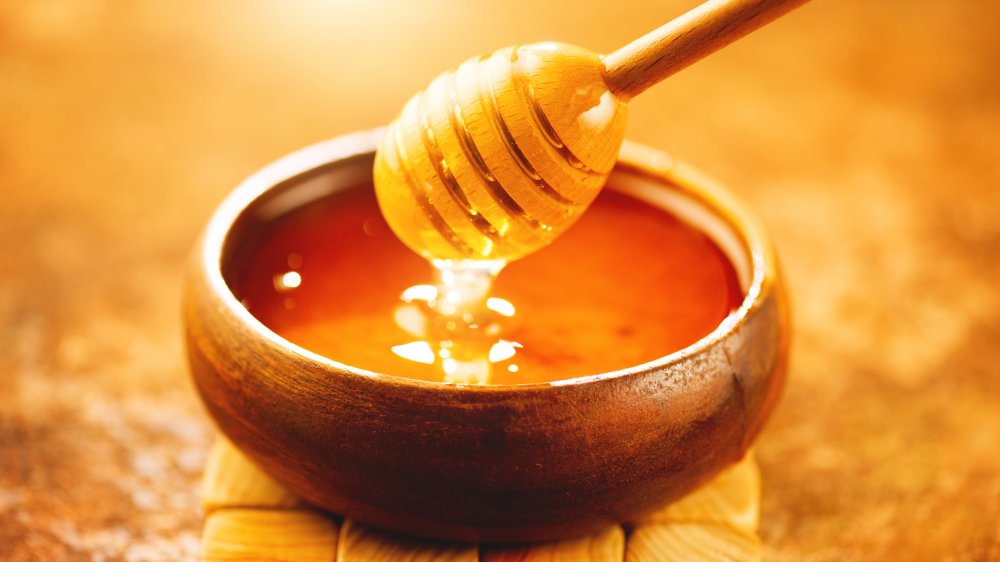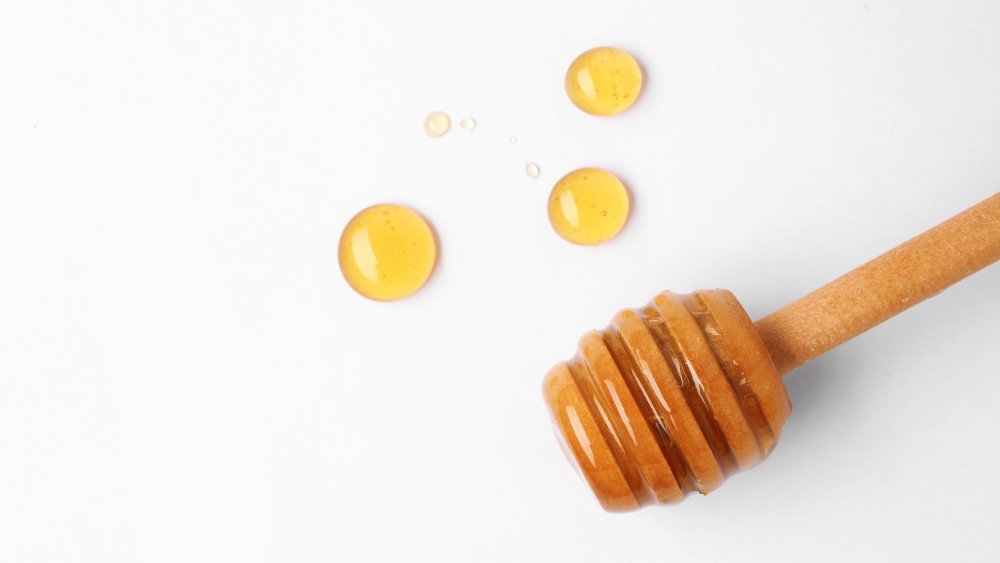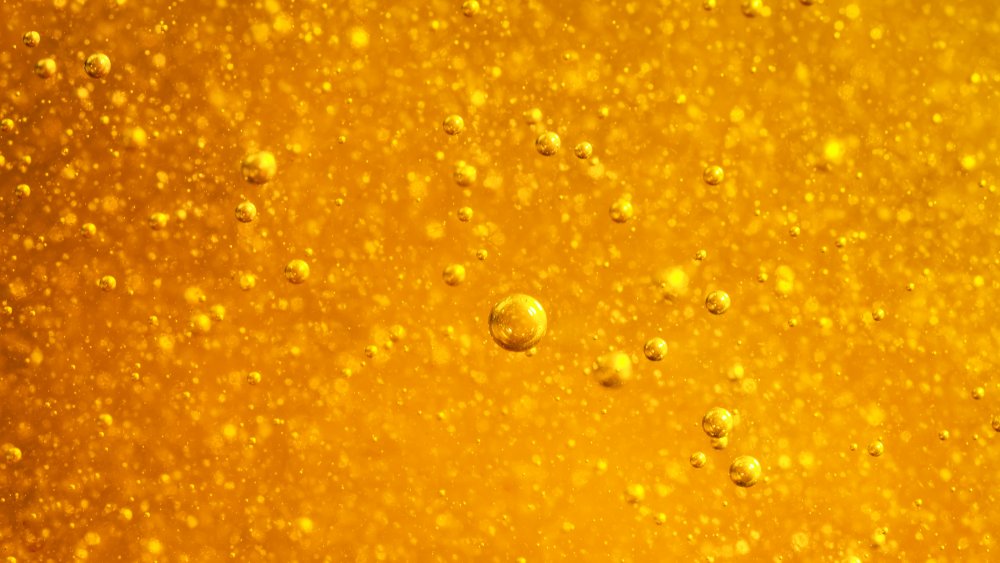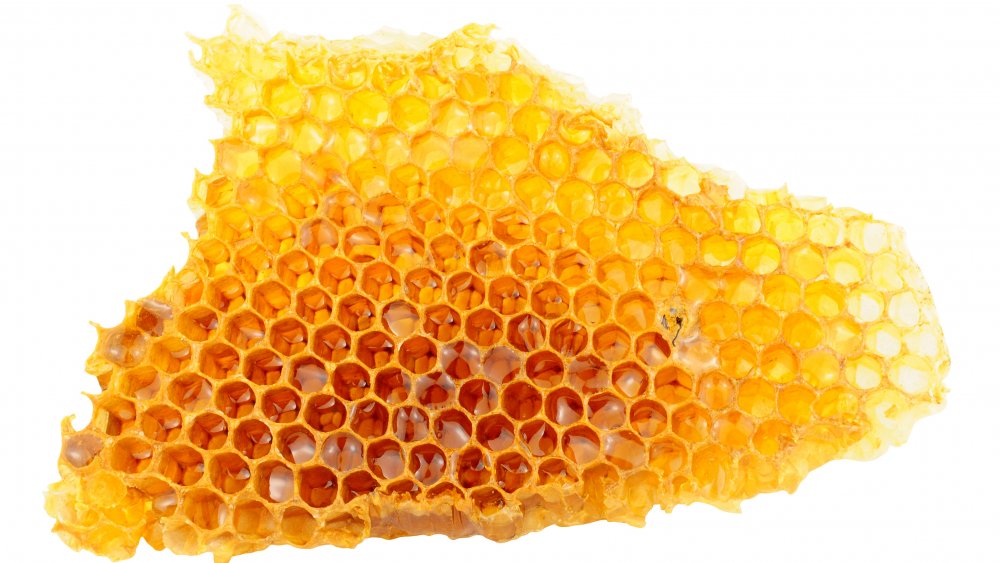Here's What Happens When You Eat Honey Every Day
The history of honey goes back to the dawn of time with records of honey production dating to 2100 B.C., when it was talked about in Babylonian and Sumerian cuneiform texts (via The Spruce Eats). It was written about in ancient Egyptian and Indian secret texts, and in fact, honey was even found in the tomb of King Tut. Because honey never spoils, the honey which was discovered in his tomb would still have been edible after its discovery 3,000 years later (via Bee Mission and The Conversation).
While there aren't yet studies to back it up, most honey proponents are referring to raw honey when they highlight the health benefits of the substance, as the pasteurization process is believed to wipe out some of the healthy components of honey (via Medical News Today). That's what we'll address here. Here's what happens if you eat honey every day.
You'll be getting plenty of antioxidants
Honey contains lots of antioxidants which can help the body in a number of ways, and researchers believe that the antioxidant content of honey is one of the primary components that give it its health benefits. A number of different types of antioxidants including phytochemicals, flavonoids, and ascorbic acid (better known as vitamin C) are found in honey.
Antioxidants fight against free radicals, which are introduced into the body from a number of lifestyle factors including smoking, drinking, exposure to environmental pollution, and the consumption of unhealthy foods (via Medical News Today).
Free radicals can cause oxidative stress in the body, which is thought to have a wide range of consequences ranging from diabetes, to Alzheimer's, to cataracts, to cancer, to premature aging. Antioxidants work against these free radicals and keep them in check. Scientists believe that a diet rich in antioxidants will reduce people's risk of many chronic diseases.
Honey will keep your digestive tract in good shape
Honey has antimicrobial properties and has been shown to kill a number of types of bacteria in studies, from E. coli, to salmonella (via CNN). A number of types of honey have also been shown to be able to combat H. pylori, which is the bacteria found in the gut, responsible for peptic ulcers.
Honey is also considered a prebiotic food, which means that it feeds the good bacteria that live in the stomach (via Healthline). Meanwhile, unlike refined sugars, honey doesn't ferment inside the digestive system, which can aggravate the digestive tract (via Balqees). Honey is also alkaline-forming, which means that it can help to combat inflammation in the gut and the digestive system.
Honey can help keep your cough in check
While a number of cold and flu medications come in a honey lemon flavor, there's a good chance that using honey to treat your cold symptoms is actually more effective than using an over-the-counter medicine. According to CNN, a study that looked at 139 children reported that honey was more effective at reducing nighttime coughs and improving sleep quality than diphenhydramine (better known as Benadryl), or the cough suppressant dextromethorphan.
A second study, which looked at 105 children, confirmed the findings. Buckwheat honey was found again to be more effective than using dextromethorphan. Additional studies using wildflower, eucalyptus, citrus, and labiatate honeys also reported that honey was more effective than placebo at cutting down on nighttime coughing, and promoted sleep for children with infections of the respiratory system. It's important to note, however, that infants should not be fed raw honey because their systems are unable to deal with the unpasteurized variety, which can make them very ill.
Honey can still boost your blood sugar and cause weight gain
Although honey has a number of health benefits, it's important to remember that it's still full of sugar. Honey is comprised predominantly of fructose and glucose, which are types of sugar that tend to be converted quickly by the body into energy (via Time). A single tablespoon of honey contains about 64 calories and 17 grams of sugar. While it's widely considered to be healthier given the fact that it's not as processed as other sweeteners such as refined sugar or high-fructose corn syrup, there's no getting around the fact that honey is chock full of sweetness and calories. As one dietitian put it, "Consuming a lot of honey means consuming a lot of calories."




